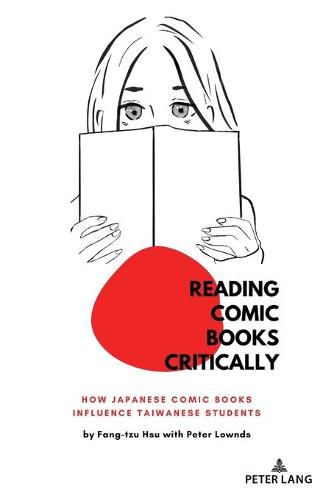Readings Newsletter
Become a Readings Member to make your shopping experience even easier.
Sign in or sign up for free!
You’re not far away from qualifying for FREE standard shipping within Australia
You’ve qualified for FREE standard shipping within Australia
The cart is loading…






This title is printed to order. This book may have been self-published. If so, we cannot guarantee the quality of the content. In the main most books will have gone through the editing process however some may not. We therefore suggest that you be aware of this before ordering this book. If in doubt check either the author or publisher’s details as we are unable to accept any returns unless they are faulty. Please contact us if you have any questions.
Education knows no boundaries but ‘hot button issues,’ like their students’ love for comic books, highlight school, teacher and parent bias. Japanese comic books (manga) play an important role in the lives of most Taiwanese teenagers. This study includes surveys, a textual analysis of five student-selected manga series and multiple interviews with students and educators about comics’ appeal and educational value. Japanese manga contain complex and sometimes contradictory ideologies of ethnicity, gender, class, and violence. From an ethnic perspective, although students may glean cultural content from manga heroes and their retinues, people of color and non-Japanese Asians are either caricatures or non-existent. Taiwanese consumers seem largely unaware of this. Depictions of social and economic class distinctions are subtle although the dominant ideology of manga creators is middle-class. Manga aficionados are, for the most part, oblivious to class distinctions, but some notice that ancient caste precepts flourish. Although most manga focus on violent combat, their youthful consumers seem unaffected by excessive gore. Bloody battles with enemy legions are seen as a necessary element for the hero’s journey. From a post-colonialist perspective, manga’s exaltation of Japanese cultural archetypes may preempt their readers’ allegiance to and pride in being Taiwanese.
$9.00 standard shipping within Australia
FREE standard shipping within Australia for orders over $100.00
Express & International shipping calculated at checkout
Stock availability can be subject to change without notice. We recommend calling the shop or contacting our online team to check availability of low stock items. Please see our Shopping Online page for more details.
This title is printed to order. This book may have been self-published. If so, we cannot guarantee the quality of the content. In the main most books will have gone through the editing process however some may not. We therefore suggest that you be aware of this before ordering this book. If in doubt check either the author or publisher’s details as we are unable to accept any returns unless they are faulty. Please contact us if you have any questions.
Education knows no boundaries but ‘hot button issues,’ like their students’ love for comic books, highlight school, teacher and parent bias. Japanese comic books (manga) play an important role in the lives of most Taiwanese teenagers. This study includes surveys, a textual analysis of five student-selected manga series and multiple interviews with students and educators about comics’ appeal and educational value. Japanese manga contain complex and sometimes contradictory ideologies of ethnicity, gender, class, and violence. From an ethnic perspective, although students may glean cultural content from manga heroes and their retinues, people of color and non-Japanese Asians are either caricatures or non-existent. Taiwanese consumers seem largely unaware of this. Depictions of social and economic class distinctions are subtle although the dominant ideology of manga creators is middle-class. Manga aficionados are, for the most part, oblivious to class distinctions, but some notice that ancient caste precepts flourish. Although most manga focus on violent combat, their youthful consumers seem unaffected by excessive gore. Bloody battles with enemy legions are seen as a necessary element for the hero’s journey. From a post-colonialist perspective, manga’s exaltation of Japanese cultural archetypes may preempt their readers’ allegiance to and pride in being Taiwanese.